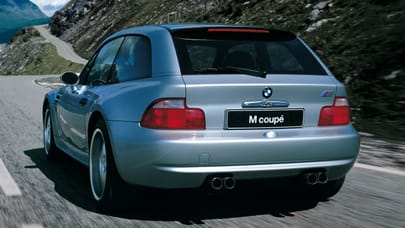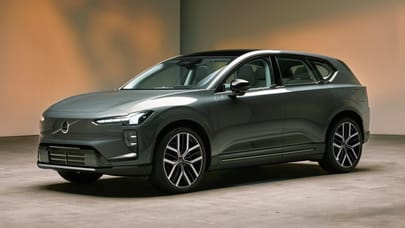
How to buy a car: an idiot's guide
Tired, lost and confused by the situation? Let us untangle a few car-buying knots


Buying a new car is exciting. Not a lot in life beats that new car smell, but, if you're anything like us, you may also be a fan of something less fragrant, but more exotic. So if you're in the market for a new motor but are utterly flummoxed by the situation, we've got some handy pros, cons and points of where to begin and how to afford your dream car.
Advertisement - Page continues belowWebsite

Pro: You can compare cars from all over, figure out what you want and use configurators to see exactly the kind of cars you can afford. A site like Carwow aggregates offers from dealers to find you the best price – essentially pitting them against each other for your business. It widens a dealer’s reach, but they’re motivated to offer you a decent deal to secure you as a customer.
Con: Depends on where you’re buying from, but can lack the security of a main dealer. No test drives, or physical contact with the vehicle.
Private Seller

Pro: Can be much cheaper, and private sellers will be expecting at least a bit of haggling.
Con: There’s not much backup – if you buy a duffer, there’s not much recourse, and you won’t be able to test drive without organising some form of insurance.
Con: Can be incredibly intimidating at times, and there are plenty of scams that neatly fall under the various versions of ‘buyer beware’. If you’re buying ‘as seen’ then you either need to know what to look for, or take someone with you that does.
Pro: Did we mention the cheapness? You might get a bargain.
Advertisement - Page continues belowMain dealer

Pro: It’s a main dealer, so there’s a big sense of security. Wide variety of models to choose from, and a salesperson can walk you through an actual car similar to the one you may end up buying.
Pro: Test drives. Always take one. In fact, insist on it. Figure out what you’ll be doing in a car and test it on those kinds of roads – if the seats are uncomfortable, they won’t magically get better once you’ve bought it.
Pro: You can often manage a trade-in for your old car.
Con: Will generally cost a bit more.
Auction

Pro: Bargains to be had.
Con: You can buy a duffer and be stuck with it.
Tips for buying at an auction:
Go to an auction or three with no intention of buying. Figure out how it works. Don’t rush.
Read the catalogue, know what kind of car you want and how much you want to pay. Don’t get excited and overbid in the heat of the moment.
Inspect the cars you’re interested in, but don’t expect to find your ‘perfect’ car.
Listen to the auctioneer – they’ll often note stuff that needs doing.
Don’t forget to weave in the associated costs; buyer’s fees, deposits, tax and insurance to get the thing home
Insurance

Don’t forget to budget for insurance costs when working out what you can afford. There’s not much point scraping together enough cash to buy, if you can’t then be legal when you actually get out on the road.
Fuel

Diesels generally manage more mpg, but carry a price premium and you have to do around 20k miles a year or more to justify it. EV still carries a charge cost, but compared with fossil fuels, it's very little.
Advertisement - Page continues belowRoad Tax

Vehicle Excise Duty (VED) turns up in two forms; pre 1 April 2017, and post. Any vehicles registered before that date fall under the old rules, so worth checking. EVs don’t incur VED, unless it costs more than £40,000.
Congestion Charge

The rules keep changing regarding which cars are liable for the London-centric Congestion Charge, but with other metropolitan areas thinking about it, only EVs are safe.
Advertisement - Page continues belowAllowance

Usually a cash sum thrown at you for opting out of the company car scheme. Useful if you want to drive something a bit more interesting, or can commute on public transport and keep a private car for now-and-then usage.
Monies

The days of paying with cash in a brown envelope are gone. Well, nearly...
Cash
Old-school and most simple. Play hard for the best outcome because you’re being very uncomplicated; don’t get starry-eyed about options you don’t need. Don’t reveal your ultimate budget too early – start with your base take and work up from there. Don’t forget to take the trade-in value into account – get some idea of the relative value of your vehicle before you turn up.
Personal loan
You take out a specific bank loan with a specific monthly payment plan. You buy – and own – the car immediately. Then you pay back the loan over the agreed period, including interest. Same rules apply as to a cash purchase – bargain hard, keep your cool and avoid the upsell, even if the options are tempting.
Hire purchase
Basically, a car mortgage. You stump up a dealer deposit, then split the rest of the cost over a set number of years/repayments per month. At the end, you own the car. Quite simple to understand versus something like PCP (below), but you will have heftier deposit contributions and likely larger/longer repayment schedules. Don’t forget to include the interest.
Personal contract purchase – PCP
Put simply: deposit, monthly payments, final ‘balloon’ payment. You never own the car but, because you’re essentially only paying the car’s depreciation, you get to pay less up front and can have lower monthly repayments. But if you don’t make the final payment, you walk away with no car.
Personal contract hire
Long-term rental, essentially. You agree a monthly payment and hand back the car at the end of the term. You can’t buy it at the end (like PCP), because it’s rented, but it does mean you also don’t worry too much about anything else. Like with PCP, you must look after the car and stick to agreed mileages, or you’ll get hammered at the end of the term.






